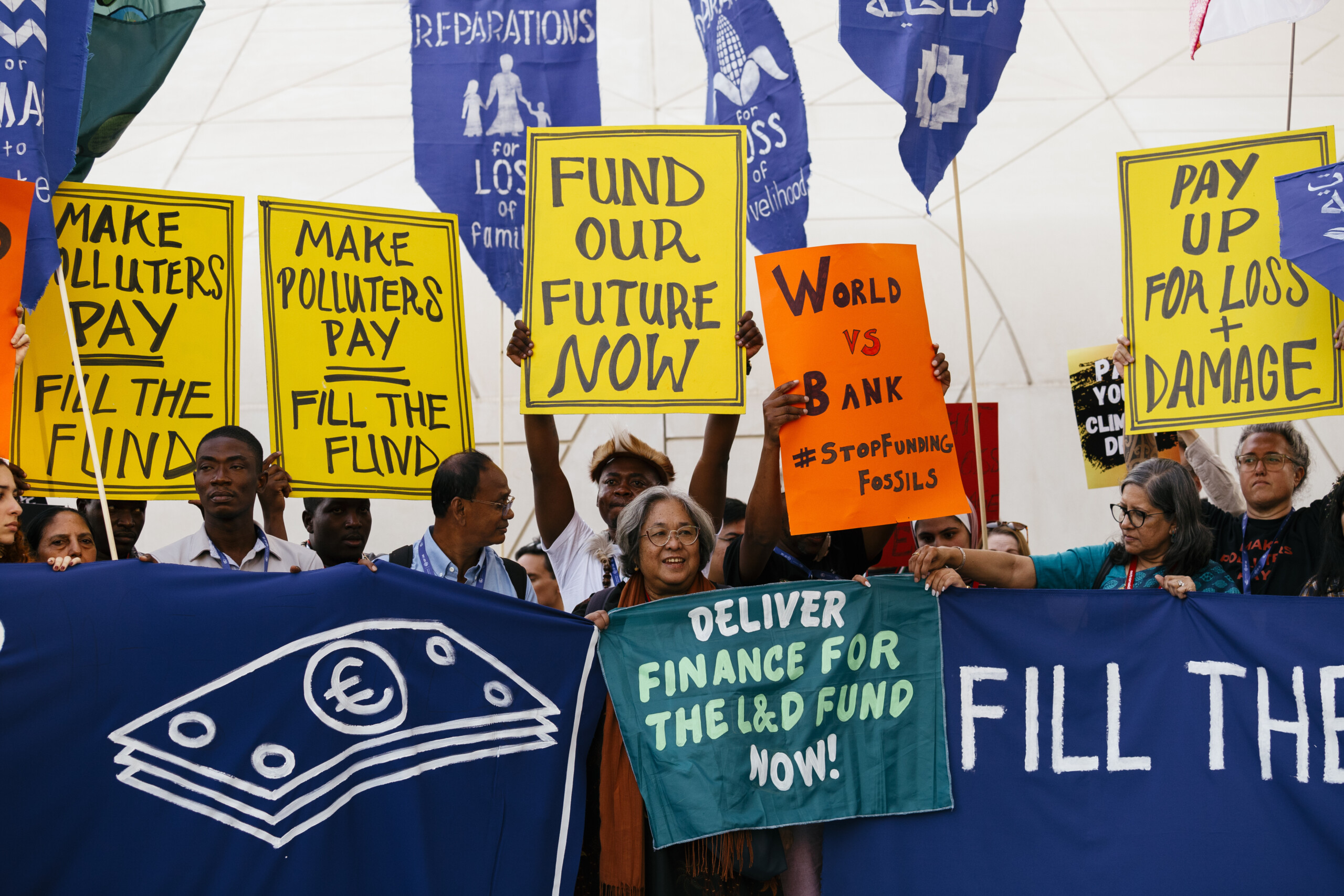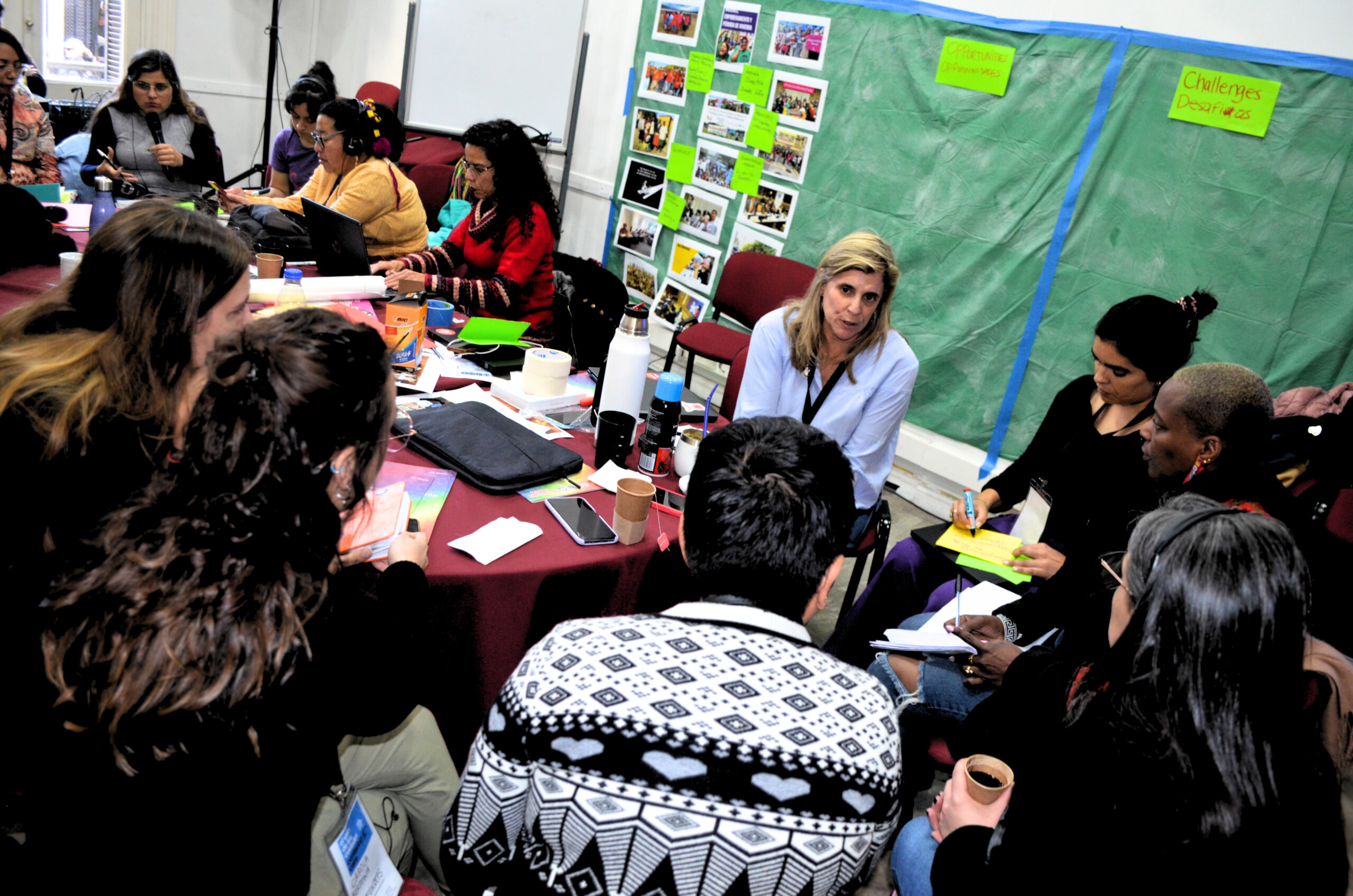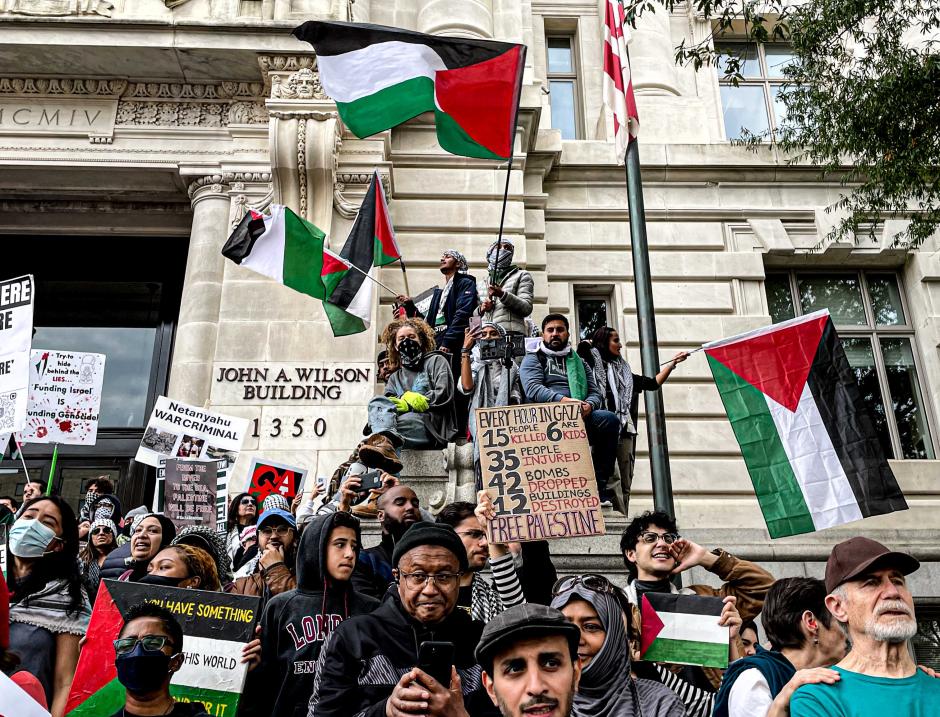2024
Centering Community Perspectives in Crafting Global Crisis Solutions


Over five days, we worked to chart strategies for building a future rooted in justice, dignity, and care for people and the planet. This summit demonstrated the power of international solidarity in the face of multiple global crises. Read this blog for a summary of the highlights of the summit.
In the face of multiple and intersecting crises impacting communities around the world, this GSM will focus on creating a pathway to shape global change towards a future where care for people and the planet, solidarity, and substantive equality guide decisions and shape structures to ensure human rights and social justice for all.
- Deepen a shared political analysis of the global context, building on the conditions identified in the Common Charter for Collective Struggle (2016) and attentive to the evolving climate, debt and care crises of the past few years, as well as drawing lessons from our collective actions as ESCR-Net.
- Create space to envision different futures, focusing on existing solutions being lived and demanded by members’ communities around the world.
- Explore the right to self-determination and its implications for the collective demands and positions of ESCR-Net.
- Consider fights for new social and environmental rights, such as the right to care or the rights of nature.
- Develop a new member-led and member-owned strategic framework for ESCR-Net.
- Articulate a shared approach to campaigning and, ideally, launch a global campaign.
- Renew cross-regional relationships and solidarity, while learning from and acting in solidarity with struggles in Asia, using this as a space for movement-building aligned with our core principles and a commitment to shifting power.
We are grateful that the Asia Indigenous Peoples Pact (AIPP) has agreed to co-host this meeting, with the Asia Pacific Forum on Women, Law and Development (APWLD), also based in Chiang Mai, agreeing to help shape this meeting as part of the international planning committee.
AIPP has been central to collective work on climate justice, as well as corporate accountability and economic policy, working with fellow Indigenous members and others to more fully center the right to self-determination, including Indigenous Peoples’ right to free, prior, and informed consent. Similarly, APWLD has provided vital feminist leadership to collective advocacy for climate justice, feminist economies of care, and wider development justice.
- Gam Shimray, Asia Indigenous Peoples Pact (AIPP), Thailand (Co-host)
- Misun Woo, Asia Pacific Forum on Women, Law and Development (APWLD), Thailand
- Herman Kumara, National Fisheries Solidarity Movement (NAFSO), Sri Lanka
- Wael Gamal, Egyptian Initiative for Personal Rights (EIPR), Egypt
- Binota Moy Dhamai, Asia Indigenous Peoples Pact (AIPP), Thailand (Board member)
- Christiana Saiti Louwa, World Forum of Fisher People (WFFP), Kenya (Board member)
- Debbie Stothard, Alternative ASEAN Network on Burma, (ALTSEAN-Burma), Thailand (Board member)
- Irene Escorihuela Blasco, Observatori DESCA, Spain (Board member)
- Juana Toledo Pascual, Consejo de Pueblos Wuxhtaj, Guatemala (Board member)
- Maha Abdallah, Palestine (Board member)
- Ryan Schlief, International Accountability Project (IAP), US (Board member)
In preparation for ESCR-Net’s 2024 Global Strategy Meeting, our Social Movement Working Group organized a series of discussions, including online sessions and in-person meetings in South Africa and Brazil, to reassess the Common Charter for Collective Struggle. These discussions and workshops on systemic critiques of issues like violence, debt, care, and climate aimed to deepen the analysis of capitalism and oppression. The conversations reaffirmed that, despite the unique aspects of each struggle, the global conditions affecting communities are rooted in unjust economic and social systems. This charter outlines the global threats to our human rights and highlights the shared challenges that unite us.
In preparation for Chiang Mai, we coordinated eight 2-hour network-wide workshops to analyze the current global challenges being addressed by members through ESCR-Net and to assess how we are positioned as a Network to confront these challenges in the coming period. Between May 22 and July 10, 2024, these workshops were planned and led by different groups of members, focusing on:
- Denouncing corporate capture of government institutions and decision-making.
- Demanding debt cancellation, centering care for people and the planet.
- Confronting the political economy of violence and shrinking democratic space.
- Strengthening access to justice.
- Centering communities’ narratives and demands in public decision-making.
- Self-determination: ensuring people’s control over their bodies, territories, ways of life, and economies in the face of colonialism/imperialism, capitalism, and patriarchy.
- Exploring new approaches for countering dominant narratives and building cross-movement power through communication and campaign strategies

Building on the Network’s evolving analysis of the polycrisis related to debt, care, climate, and corporate capture, this series of five regional consultations aimed to deepen this analysis, create space for members to share strategies for challenging the polycrisis, and begin identifying opportunities for ESCR-Net to respond. The consultations also helped identify areas in our analysis that require further investigation.
Approximately 180 members registered from across North America, Latin America and the Caribbean, Europe, SWANA, Sub-Saharan Africa, and the Asia-Pacific regions.

